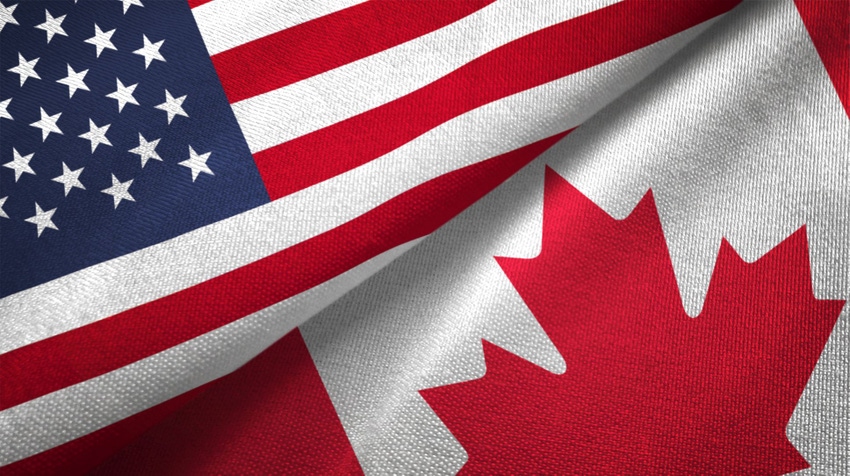Canada raises concerns about Prop 12, trade barriers
Proposed changes to Product of the U.S.A. labeling could disrupt an integrated North American market.

Last week Canada’s Minister of Agriculture and Agri-Food Lawrence MacAulay met with U.S. Secretary of Agriculture Tom Vilsack to discuss the importance of continuing to work collaboratively on mutual priorities, including rules-based international trade.
MacAulay raised proposed changes in voluntary “Product of USA” labelling regulations for meat and livestock as well as California’s Proposition 12. The Minister reaffirmed Canada’s concerns that these rules have the potential to restrict trade and disrupt supply chains.
“Canada and the U.S. have a bond like no other in the world. My discussions with our American partners highlighted the important and unique agricultural partnership between our two countries,” said MacAulay. “This is a connection based on shared geography, common values, mutual interests and economic ties, with the shared goal of building a sustainable agricultural sector that strengthens our rural economies, and feeds folks at home and around the world.”
This was the first ministerial outreach to the United States by MacAulay since his reappointment on July 26, 2023. MacAulay also sat down with representatives from the National Cattlemen’s Beef Association and the Canadian Cattle Association to discuss reducing trade barriers and the important integrated nature of beef supply chains.
Canada is the second largest agricultural customer of the United States – and the No. 1 agriculture export market for over half of U.S. states. In 2022 Canada-U.S. trade in agriculture and food rose by 14% to over USD $70 billion – nearly USD $200 million a day.
“Not only is Canada a key trading partner, but a partner in tackling climate change, food security and keeping North American ag on the cutting edge of innovation,” Vilsack tweeted following the meeting.
Thickening borders
In a June 2023 op-ed, Manitoba Pork Council General Manager Cam Dahl urged Canada to respond assertively to Prop 12 and that all potential measures to stop the fragmentation of the North American market must be taken, including challenges through the WTO and the Canada – United States – Mexico Agreement.
“California's Proposition 12 and proposed changes to Product of the U.S.A. labeling will 'thicken' the border between Canada and the U.S., making trade more difficult and disrupting the integrated North American market," Dahl writes. "Some of the costs of these new measures will be carried by Canadian hog farmers and beef producers, who will both face price discounts, but they are not alone. At the other end of the supply chain, consumers will pay more at the grocery store, something no politician should want to be associated with, especially during a time of rampant food inflation.”
Dahl also further addressed the Product of the U.S.A. labeling.
“Today, a ham can be labelled 'Product of the U.S.A.' if the animal from which it is derived was processed in the U.S., even if it was born in Canada. This approach recognizes the consistency between Canadian and American food safety regulations and high standards for raising animals. But this is about to change. Proposed amendments to U.S. regulations would require meat that carries the label to be derived from animals exclusively born, raised and processed in the United States," Dahl notes.
"Manitoba hog farmers have long standing, mutually beneficial, relationships with our customers in Iowa, Minnesota and other states, but these relationships won’t count if the U.S. processors and retailers demand that their suppliers adhere to the terms of the new label. Manitoba Pork holds that if this occurs, the new label will be voluntary in name only and the millions of dollars in damage caused by mandatory country of origin labelling will recur. I am concerned that the revised labeling regulations not only undermine the integrity of international trade but also mislead consumers who may mistakenly believe that imported pork is of lower quality.”
About the Author(s)
You May Also Like





